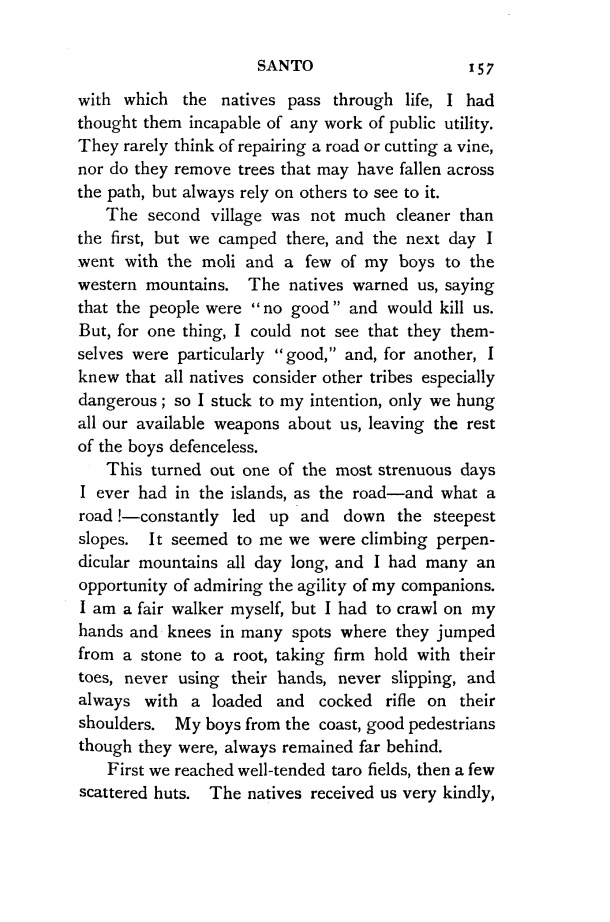|
|  [Note: this transcription was produced by an automatic OCR engine]
SANTO 1 57
with which the natives pass through life, I had
thought them incapable of any work of public utility.
They rarely think of repairing a road or cutting a vine,
nor do they remove trees that may have fallen across
the path, but always rely on others to see to it.
The second village was not much cleaner than
the first, but we camped there, and the next day I
went with the moli and a few of my boys to the
western mountains. The natives warned us, saying
that the people were “no good” and would kill us.
But, for one thing, I could not see that they them-
selves were particularly “good,” and, for another, I
knew that all natives consider other tribes especially
dangerous; so I stuck to my intention, only we hung
all our available weapons about us, leaving the rest
of the boys defenceless.
This turned out one of the most strenuous days
I ever had in the islands, as the road—and what a
road l—constantly led up and down the steepest
slopes. It seemed to me we were climbing perpen-
dicular mountains all day long, and I had many an
opportunity of admiring the agility of my companions.
I am a fair walker myself, but I had to crawl on my
hands and knees in many spots where they jumped
from a stone to a root, taking firm hold with their
toes, never using their hands, never slipping, and
always with a loaded and cocked rifle on their
shoulders. My boys from the coast, good pedestrians
though they were, always remained far behind.
First we reached well—tended taro fields, then a few
scattered huts. The natives received us very kindly,
|